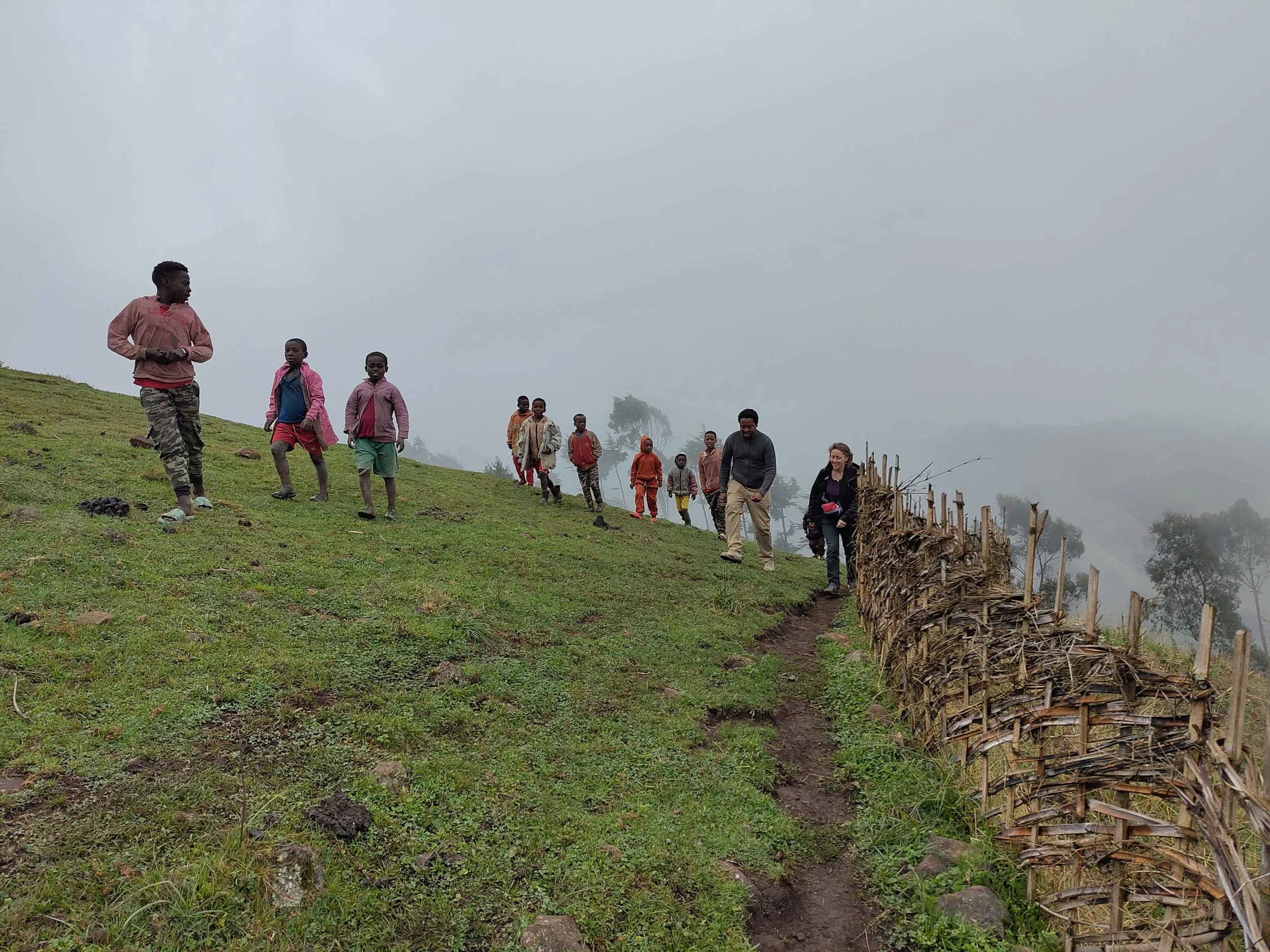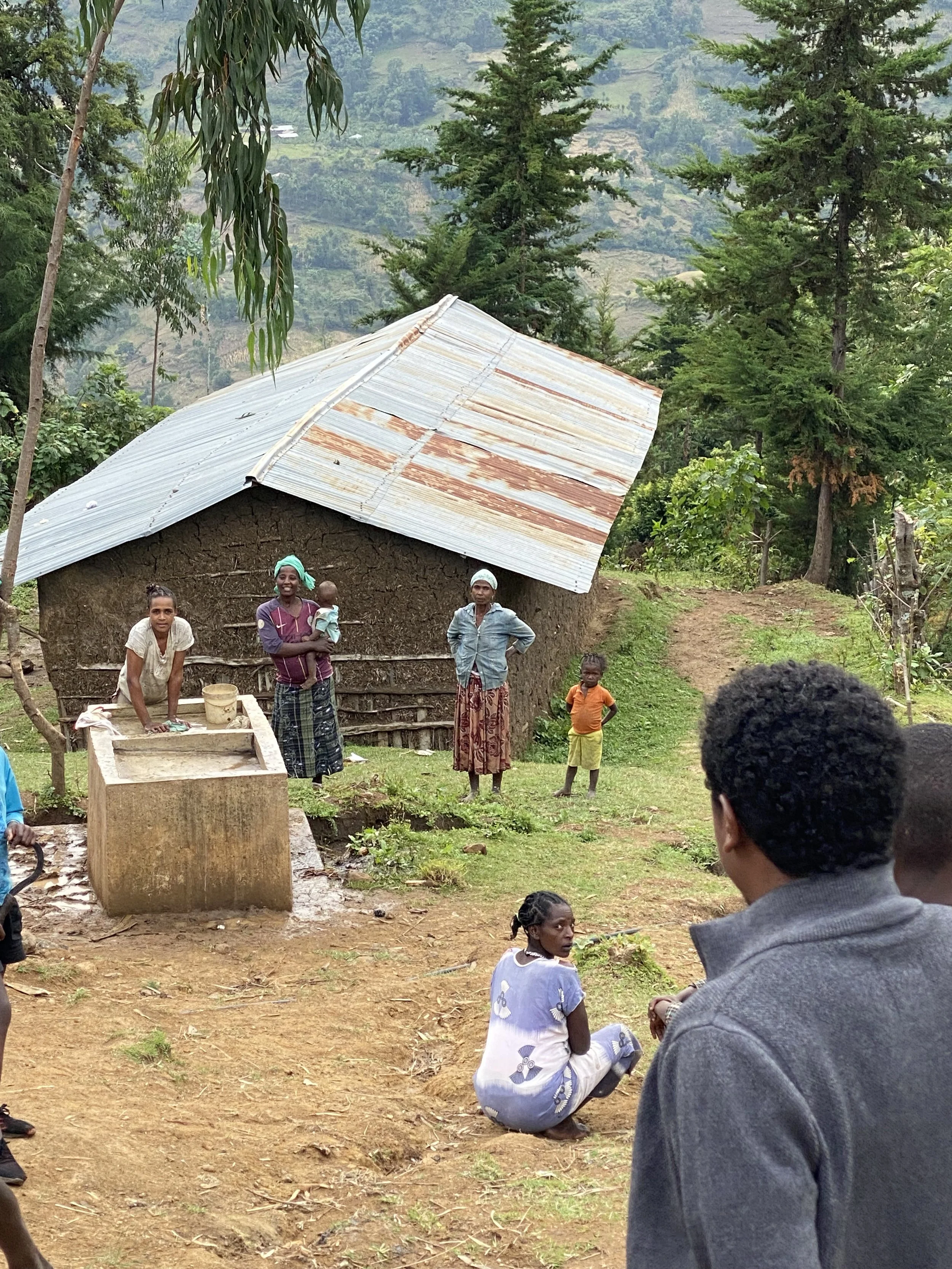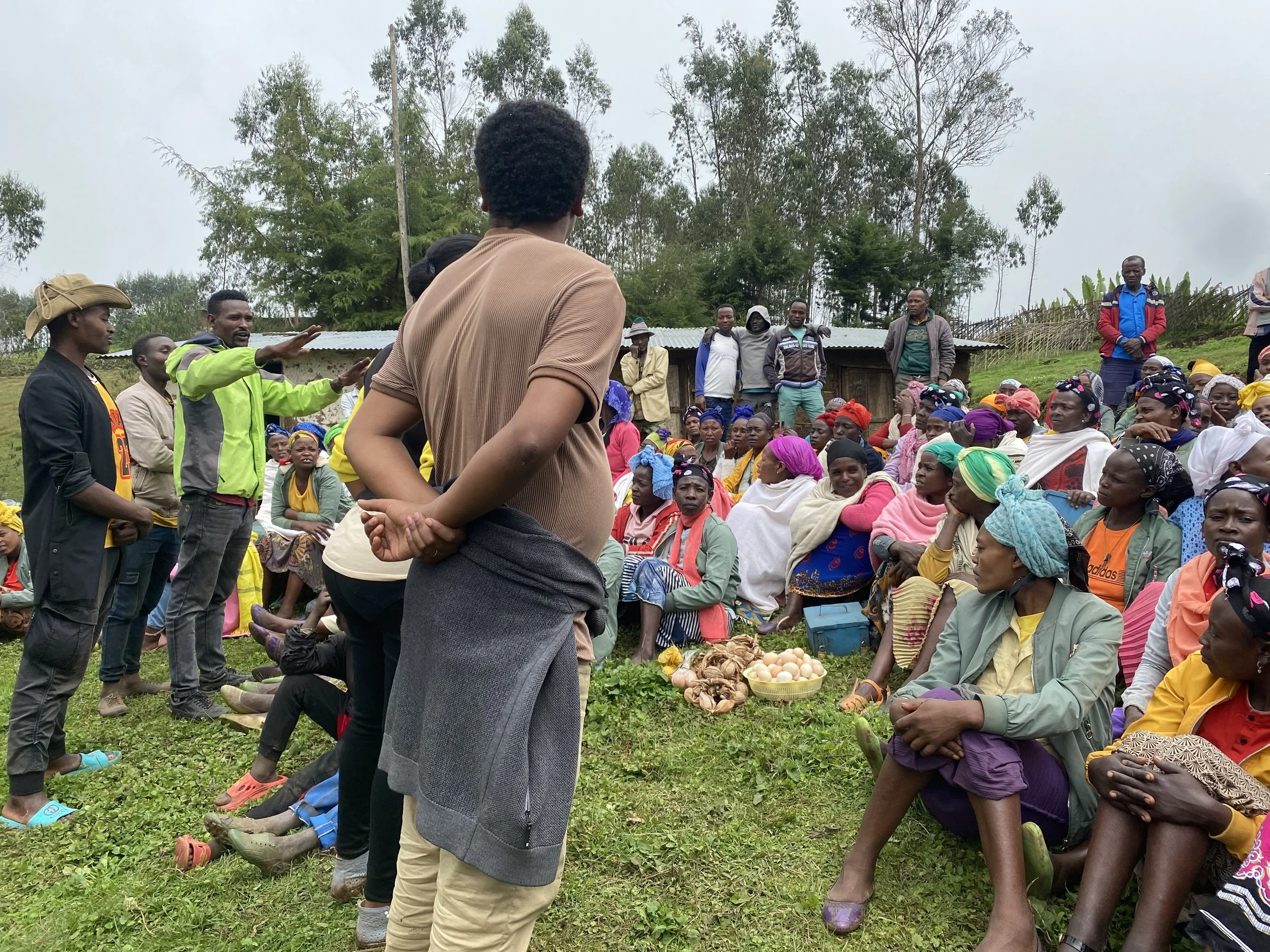Harnessing the Power of Data for Effective Monitoring and Evaluation in HOPE's Project Management Endeavour
By Awoke Dagnew, Strategy & Programs Manager, HOPE ETHIOPIA
My role at HOPE Ethiopia includes: project needs assessment; program design and execution; periodic supportive supervision, follow-up, and monitoring; facilitation of donor and government signatories monitoring and evaluation; and stakeholders' engagement.
Awoke regularly visits the project sites to monitor the work completed
HOPE International Development Agency has been working to empower rural communities in different parts of Ethiopia since 1975, the year of its establishment. The program thematic areas include the provision of access to clean and safe water for hard-to-reach community members in rural areas, accompanied by integrated community development actions. Even though the primary focus is increasing access to clean and safe water, our projects also focus on women's empowerment, health education, agricultural productivity and environmental sustainability, all of which are highly interlinked in one way or another.
The lack of access to clean and safe water in the context of rural people in Ethiopia commonly affects the lives of women and girls, leading them to walk very long distances carrying at least a 20-litre container. This consumes their time, and in most cases, girls drop out of school. Thus, in addition to the construction of water schemes, we invest in women's empowerment interventions to enhance their knowledge, attitudes and practices on effective water system management (specifically, WASH governance), women's rights, plus business and financial literacy skills. This helps us to ensure that our project outputs are more robust, as women play a crucial role in community development, and the enhancement of community ownership and sustainability.
HOPE has a proven track record of contributing to community resilience in rural areas of Ethiopia. We have constructed and installed 139 water schemes, capped/developed 199 springs and supplied 6.62 million litres of clean and safe water a day to more than 320,000 water users. It has also empowered and transformed the living conditions of more than 20,000 women. We have been able to achieve this because our project management centres on the strategic use of data to drive decision-making from the inception up to the end of program execution. In our program operation, data serves as a critical tool in identifying needs, tracking progress and monitoring and evaluating the efficiency, effectiveness and sustainability of our projects and implementation approaches.
HOPE's project identification critically focuses on surveying, analysing and interpreting figures. We assess the water spring capacity (we call it -spring yield) and do some calculations against the total population of the community. Once we have learned that the spring potential is closer to the water consumption of the targeted community per period, we do further surveys to understand the socio-economic and infrastructural situation of the area. Then, the next phase is to determine the bill of quantity for the water scheme and professionally estimate budgets for our intervention, including costs for the detailed activities.
Despite the calculations and estimations at the beginning of each project, the actual implementation is very challenging due to changes that arise from the social, economic, structural and natural occurrances. Sometimes the numbers we collected during our survey might need to be updated because the landscape has changed due to flooding and the creation of gully areas. Similarly, some economic policies and structural changes might force us to change/modify the numbers we've estimated since the baseline survey was undertaken. Such incidents, coupled with the need to make sure things are on the right truck, require continuous program monitoring, supervision and the evaluation of changes. We learn and make decisions based on our findings. This also helps us improve our future program design and execution.
Additionally, we believe that our data collection processes, from the start of the project to its completion, empower the communities and local stakeholders we work with. As we gather relevant data, community members and stakeholders understand why specific information is being collected and begin to explore the importance of the data. This often leads them to think about how they can address any gaps that are identified. This approach builds mutual trust between HOPE, the community and other pertinent stakeholders. It also enhances data literacy, as we involve community members in data collection, quality checks and verification throughout our monitoring and evaluation process.
At HOPE, monitoring and evaluation is an ongoing learning process at various levels. This helps us identify what works well and where we can improve. For example, through continuous monitoring, we've learned that empowering women has positive effects in other areas, such as maintaining ownership of water systems; improving household economic stability and livelihoods; and enhancing children's educational success. This insight shows us the importance of prioritising women’s empowerment in our projects to achieve the desired outcomes and results.
Awoke works tightly with HOPE Community Mobilisers who live with the community throughout the 18-month project implementation, providing training and guidance
One thing that I have learned while working with HOPE International Development Agency is that our approach to data management and comprehensive monitoring and evaluation reflects our commitment to responsible stewardship of funds and accountability to the communities we serve. Our goal is to ensure that every penny received is directed toward meaningful community development efforts. I see our role as the bridge between our donors and the grassroots communities, a responsibility that requires data-driven and evidence-based planning, execution, monitoring, and decision-making. A strong monitoring and evaluation system has earned us the trust and credibility of our communities, stakeholders, and donors—a trust built over time with significant effort and dedication.








